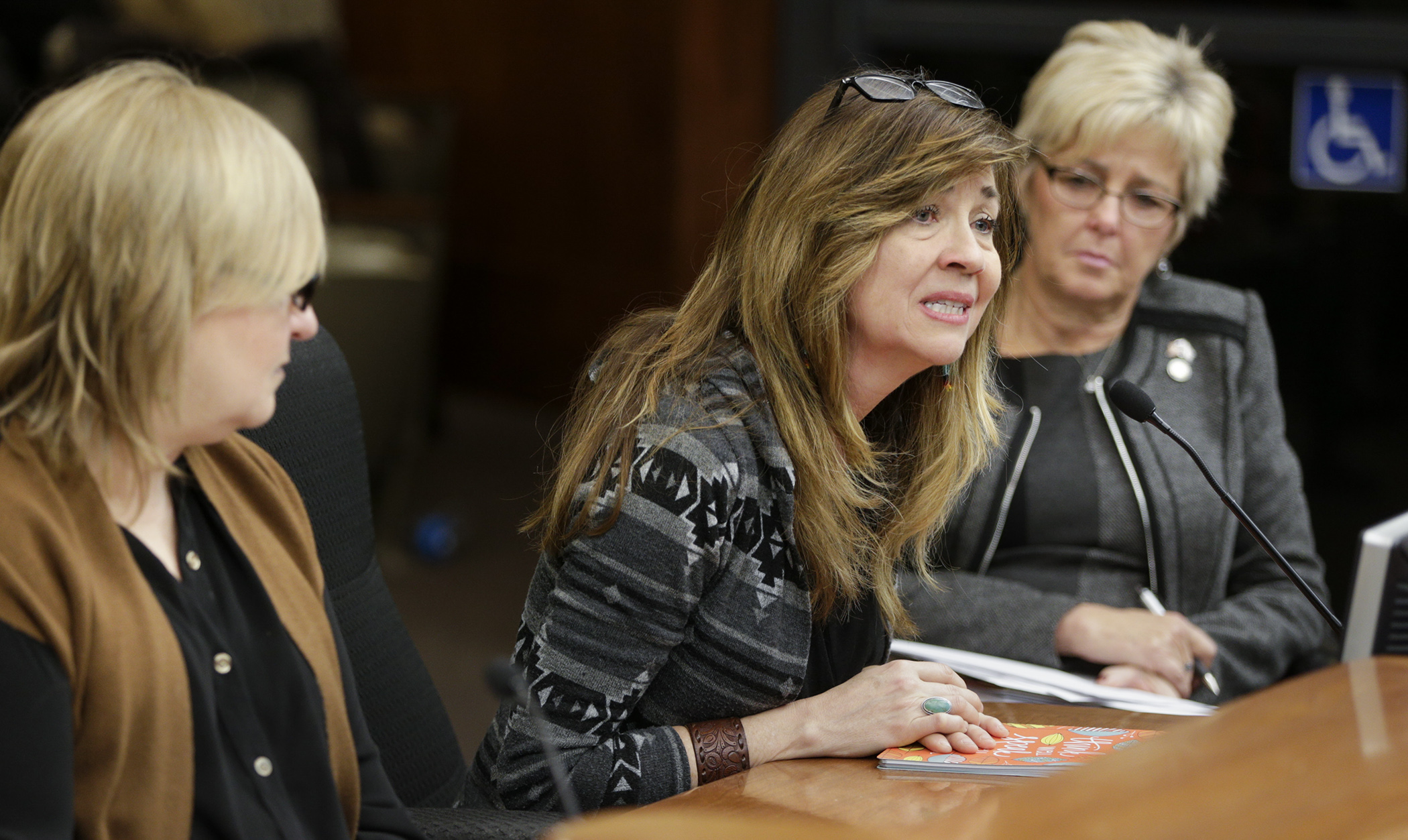House bill seeks to study link between sex trafficking and pornography

Lori Paul has experienced firsthand how pornography can create unrealistic expectations.
In emotional testimony Thursday before the House Public Safety and Security Policy and Finance Committee, she spoke of a time in the 1980s when she agreed to a date with a professional football player.
The get-together amounted to him taking her to a small studio where pornography was playing on a screen and the player wanted to have sex. In a panic, Paul said she was having her period. The player stopped his attempt and got mad, telling Paul, “You owe me.” Terrified, she performed oral sex as he requested. She never heard from him again.
While that incident occurred three decades ago, Paul, a member of Breaking Free, was crushed more recently when she discovered pornography, included a hard-core cartoon, on her 12-year-old son’s phone. “We have a chance to do something different for our boys and our girls,” she said. “… We have a chance to make a difference.”
Rep. Kathy Lohmer (R-Stillwater) aims to do that with HF2967.
“Many people consider pornography nothing more than entertainment with no thought to the victim on either side of the screen,” she said. “In reality, pornography and sex trafficking are inextricably linked. … Pornography drives the demand for sex trafficking by contributing to demand, grooming or training victims and creating additional revenue streams for traffickers.”
She said the bill “acknowledges the role pornography plays in contributing to a culture that de-values women and girls and promotes men treating women and girls as objects to be purchased, fueling the sex trafficking industry.”
“Whatever the pornography of yesteryear was like, the 21st century version is particularly violent, cruel, degrading, warping minds, especially of our young people in terms of what they’re learning about sexuality,” said Rep. Dave Pinto (DFL-St. Paul).
Approved as amended by the committee, the bill was sent to the House Ways and Means Committee. A companion, SF2554, sponsored by Sen. Michelle Benson (R-Ham Lake), awaits action by the full Senate.
The bill would expand the crimes for which the Department of Public Safety must gather statistical data to include possession of pornographic work involving minors and prohibition of dissemination and display of harmful materials to minors. The department publishes a human trafficking report very two years.
Additionally, the department would need to collect information on how pornography supports sex trafficking through things like demand and grooming victims.
Minneapolis Police Sgt. Grant Snyder has worked on trafficking issues for about two decades.
In February 2014, his department started Operation Guardian Angel that has resulted in more than 1,000 sex trafficking-related arrests, with a conviction rate of more than 98 percent.
“One of the big things we have seen through this data is the high level of pornography use among these guys, not only as sort of an introduction to the idea of sexual exploitation but also as a rehearsal,” he said.
Under current law, when a person commits certain prostitution-related crimes the court imposes an assessment between $500 and $1,000 in addition to any fine. Forty percent of that money goes to the local political subdivision that employs the arresting officer to be used to combat sexual exploitation of youth, 40 percent to the state’s safe harbor account that provides services to sexually exploited youth, and 20 percent to the prosecuting agency to be used to combat the sexual exploitation of youth.
The assessment, under the bill, would add eight crimes to that list, including coercion, labor trafficking, solicitation of a child and possession of pornographic work involving minors.
Related Articles
Search Session Daily
Advanced Search OptionsPriority Dailies
Ways and Means Committee OKs proposed $512 million supplemental budget on party-line vote
By Mike Cook Meeting more needs or fiscal irresponsibility is one way to sum up the differences among the two parties on a supplemental spending package a year after a $72 billion state budg...
Meeting more needs or fiscal irresponsibility is one way to sum up the differences among the two parties on a supplemental spending package a year after a $72 billion state budg...
Minnesota’s projected budget surplus balloons to $3.7 billion, but fiscal pressure still looms
By Rob Hubbard Just as Minnesota has experienced a warmer winter than usual, so has the state’s budget outlook warmed over the past few months.
On Thursday, Minnesota Management and Budget...
Just as Minnesota has experienced a warmer winter than usual, so has the state’s budget outlook warmed over the past few months.
On Thursday, Minnesota Management and Budget...